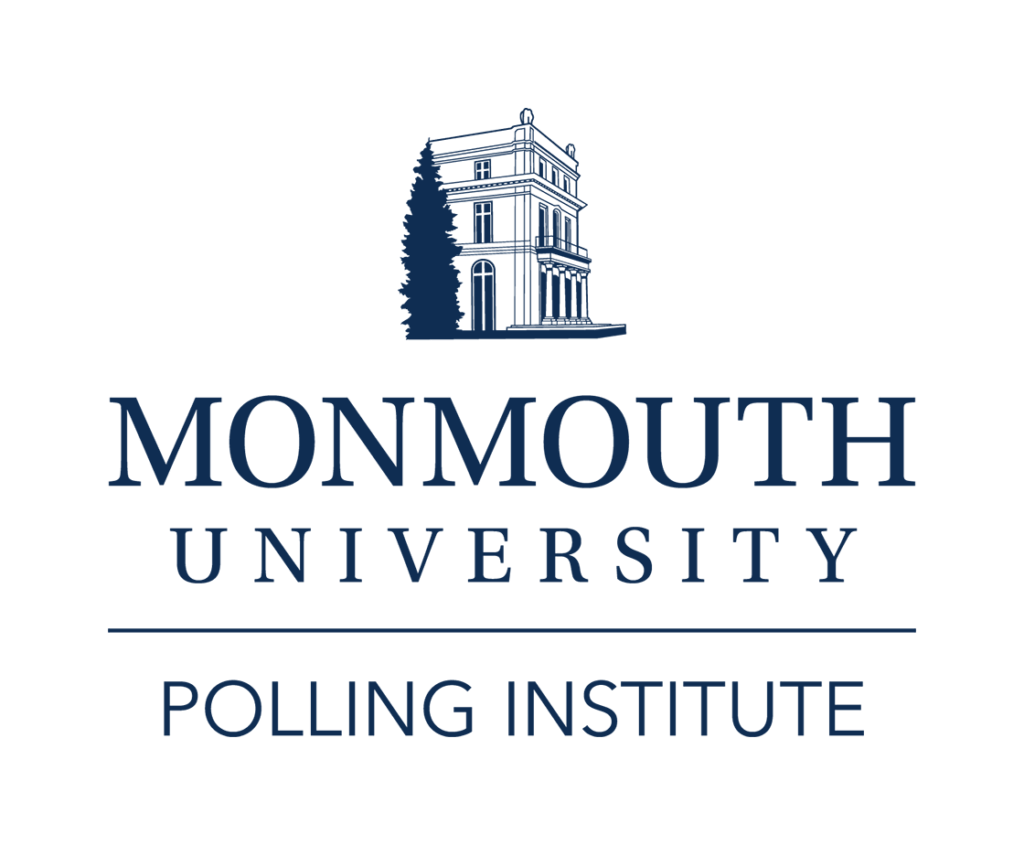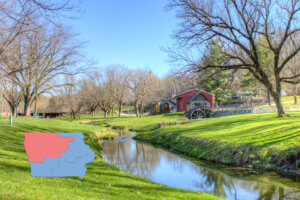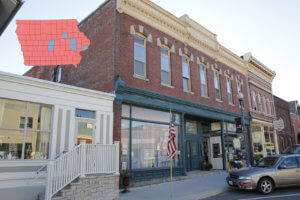West Long Branch, NJ – In the first Monmouth University Poll of likely Iowa Democratic caucusgoers in the 2016 cycle, Hillary Clinton holds a commanding 41 point lead over Bernie Sanders. This is the first poll conducted after Clinton’s appearance before the Benghazi Committee and Joe Biden’s announcement that he would not mount a presidential campaign.
Clinton currently garners the support of 65% of likely Democratic caucusgoers to 24% for Bernie Sanders. Martin O’Malley clocks in at 5% and Larry Lessig has 1% of the vote. Clinton enjoys a large lead over Sanders among both male (55% to 33%) and female (73% to 16%) voters. She also has an edge across the ideological spectrum, leading among voters who are very liberal (57% to 34%), somewhat liberal (68% to 22%), and moderate (69% to 19%).
O’Malley does best among voters who earn more than $100,000 a year (13%), but still trails Clinton (46%) and Sanders (34%) with this group. Among current Clinton supporters, 59% say Sanders would be their second choice while just 14% say it would be O’Malley. Among Sanders supporters, 68% say Clinton would be their second choice and 19% would pick O’Malley.
“We now have a two-person race, but one of those competitors has just pulled very far ahead,” said Patrick Murray, director of the independent Monmouth University Polling Institute in West Long Branch, NJ.
Four-in-ten (40%) Democratic caucusgoers say they are completely settled on the candidate they will support on February 1 st . For comparison, this is double the number of likely Republican caucusgoers who said the same (19%) in a Monmouth poll released yesterday. Another 37% of Democrats have a strong preference but are willing to consider other candidates, 10% have a slight preference and 13% are largely undecided. Clinton’s support appears to be more solid than the Sanders vote. Among Clinton voters, 49% are completely decided and 35% have a strong preference, with the remaining 16% looking at other candidates. Among Sanders voters, just 27% are completely decided and 47% have a strong preference, with 24% looking at other candidates.
Four-in-ten Iowa Democrats would be either very unhappy (16%) or a little unhappy (25%) if their chosen candidate did not win. Nearly half (47%) say they would be okay if another candidate took the party’s nomination. There are no significant differences between Clinton and Sanders supporters on this question.
About 3-in-10 (31%) Democratic caucusgoers report having seen a presidential candidate in person, with nearly half that number having met multiple candidates. Overall, 21% of these voters have seen Clinton in person, 16% have seen Sanders, 8% have seen O’Malley, and 2% of these Democrats have even attended a Donald Trump event.
Hillary Clinton holds a very strong 88% favorable and 8% unfavorable rating among likely caucusgoers. Bernie Sanders also has an extremely positive rating at 77% favorable and 11% unfavorable. Martin O’Malley also has positive numbers at 50% favorable and 14% unfavorable, but 36% of Iowa Democrats feel they don’t know enough to rate him. Larry Lessig earns a negative 9% favorable and 18% unfavorable rating, with 74% having no opinion.
Iowa Democrats tend to be satisfied with the direction of their party. Nearly 8-in-10 (79%) say the national Democratic Party is doing a good job representing the concerns of voters like them while only 12% say it is doing a bad job. This is a far cry from the sentiments of Hawkeye State Republicans in yesterday’s Monmouth University Poll – just 32% of likely GOP caucusgoers feel their national party is doing a good job while a majority of 57% say it is doing a bad job.
The Monmouth University Poll was conducted by telephone from October 22 to 25, 2015 with 400 Iowa voters likely to attend the Democratic presidential caucuses in February 2016. This sample has a margin of error of ± 4.9 percent. The poll was conducted by the Monmouth University Polling Institute in West Long Branch, NJ.
DATA TABLES
The questions referred to in this release are as follows:
(* Some columns may not add to 100% due to rounding.)
1. Who would you support if the presidential caucus was being held today and the candidates for the Democratic nomination were – [NAMES WERE ROTATED]
| Oct. 2015 | |
| Hillary Clinton | 65% |
| Bernie Sanders | 24% |
| Martin O’Malley | 5% |
| Larry Lessig | 1% |
| (VOL) Other | 0% |
| (VOL) “Uncommitted” | 1% |
| (VOL) No one | 0% |
| (VOL) Undecided | 4% |
| (n) | 400 |
2. And who would be your second choice?
Clinton | Sanders | |
| Hillary Clinton | n/a | 68% |
| Bernie Sanders | 59% | n/a |
| Martin O’Malley | 14% | 19% |
| Larry Lessig | 1% | 0% |
| (VOL) Other | 1% | 0% |
| (VOL) No one | 16% | 7% |
| (VOL) Undecided | 8% | 5% |
3. Which of the following best describes where your decision stands at this moment: I am completely decided on which candidate I will support, I have a strong preference right now but I am willing to consider other candidates, I have a slight preference among a group of candidates I like, or I am really undecided among a number of candidates?
| Oct. 2015 | |
| Completely decided | 40% |
| Strong preference | 37% |
| Slight preference | 10% |
| Undecided | 13% |
[QUESTION 4 WAS ASKED OF THOSE WITH A FIRST CHOICE; n=379, moe = +/-5.0%.]
4. How would you feel if someone other than [FIRST VOTE CHOICE] won the Democratic nomination – would you be very unhappy, a little unhappy, or would you be okay with it?
| Oct. 2015 | |
| Very unhappy | 16% |
| A little unhappy | 25% |
| Would be okay with it | 47% |
| (VOL) Depends on who wins | 9% |
| (VOL) Don’t know | 2% |
5. I’m going to read you a few names of people who are running for president in 2016. Please tell me if your general impression of each is favorable or unfavorable, or if you don’t really have an opinion. [NAMES WERE ROTATED]
| Favorable | Unfavorable | No opinion | |
| Former Secretary of State Hillary Clinton | 88% | 8% | 4% |
| Vermont Senator Bernie Sanders | 77% | 11% | 11% |
| Former Maryland Governor Martin O’Malley | 50% | 14% | 36% |
| Law professor Larry Lessig | 9% | 18% | 74% |
6. Overall, is the national Democratic Party doing a good job or bad job representing the concerns of voters like you?
| Oct. 2015 | |
| Good job | 79% |
| Bad job | 12% |
| (VOL) Depends | 6% |
| (VOL) Don’t know | 2% |
7. Have you had the opportunity to meet or see any of the Democratic or Republican candidates for president in person this year, or not?
| Oct. 2015 | |
| Yes | 31% |
| No | 69% |
| (VOL) Don’t recall | 0% |
8. If YES: Which ones? [MULTIPLE RESPONSES ACCEPTED]
| Oct. 2015 | |
| Hillary Clinton | 21% |
| Bernie Sanders | 16% |
| Martin O’Malley | 8% |
| Donald Trump | 2% |
| Other | 2% |
| No one (from Q7) | 69% |
| (VOL) Don’t know | 0% |
The Monmouth University Poll was sponsored and conducted by the Monmouth University Polling Institute from October 22 to 25, 2015 with a statewide random sample of 400 Iowa voters drawn from a list of registered Democratic voters who voted in at least one of the last two state primary elections and indicate they are likely to attend the Democratic presidential caucuses in February 2016. This includes 300 contacted by a live interviewer on a landline telephone and 100 contacted by a live interviewer on a cell phone, in English. Monmouth is responsible for all aspects of the survey design, data weighting and analysis. Final sample is weighted for age and gender based on state registration list information on the pool of voters who participate in primary elections. Data collection support provided by Braun Research (field) and Aristotle (voter list). For results based on the total sample, one can say with 95% confidence that the error attributable to sampling has a maximum margin of plus or minus 4.9 percentage points (unadjusted for sample design). Sampling error can be larger for sub-groups (see table below). In addition to sampling error, one should bear in mind that question wording and practical difficulties in conducting surveys can introduce error or bias into the findings of opinion polls.
| POLL DEMOGRAPHICS (weighted) | ||
| 44% Male | 7% 18-34 |
96% White, non-Hispanic |
| 56% Female | 17% 35-49 |
5% Other |
| 37% 50-64 | ||
| 39% 65+ | ||
Click on pdf file link below for full methodology and results by key demographic groups.




